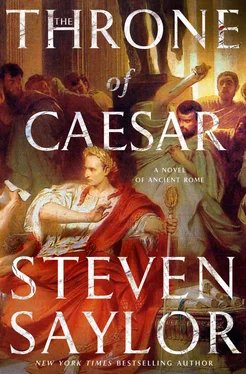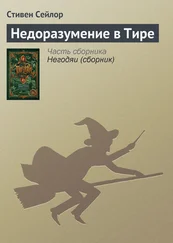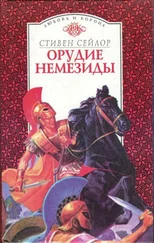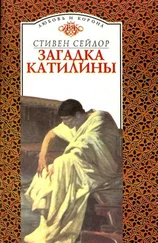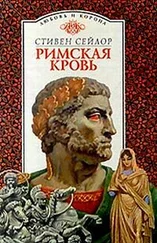Стивен Сейлор - The Throne of Caesar
Здесь есть возможность читать онлайн «Стивен Сейлор - The Throne of Caesar» весь текст электронной книги совершенно бесплатно (целиком полную версию без сокращений). В некоторых случаях можно слушать аудио, скачать через торрент в формате fb2 и присутствует краткое содержание. Год выпуска: 2018, Издательство: St. Martin's Press, Жанр: Исторический детектив, на английском языке. Описание произведения, (предисловие) а так же отзывы посетителей доступны на портале библиотеки ЛибКат.
- Название:The Throne of Caesar
- Автор:
- Издательство:St. Martin's Press
- Жанр:
- Год:2018
- ISBN:нет данных
- Рейтинг книги:5 / 5. Голосов: 1
-
Избранное:Добавить в избранное
- Отзывы:
-
Ваша оценка:
- 100
- 1
- 2
- 3
- 4
- 5
The Throne of Caesar: краткое содержание, описание и аннотация
Предлагаем к чтению аннотацию, описание, краткое содержание или предисловие (зависит от того, что написал сам автор книги «The Throne of Caesar»). Если вы не нашли необходимую информацию о книге — напишите в комментариях, мы постараемся отыскать её.
The Throne of Caesar — читать онлайн бесплатно полную книгу (весь текст) целиком
Ниже представлен текст книги, разбитый по страницам. Система сохранения места последней прочитанной страницы, позволяет с удобством читать онлайн бесплатно книгу «The Throne of Caesar», без необходимости каждый раз заново искать на чём Вы остановились. Поставьте закладку, и сможете в любой момент перейти на страницу, на которой закончили чтение.
Интервал:
Закладка:
“Perhaps men and women have different ideas about funerals,” I said quietly.
“Well, I think it’s quite reasonable of Fulvia to have the funeral immediately, if only to put it in the past, for the sake of poor Sappho. If the girl is as fragile as you say, why subject her to day after day of mourning and visits from people she doesn’t even know? ‘Quickly done is best done.’ Didn’t some poet say that?”
“Ennius, I think.”
“There, then—Fulvia is only taking her cue from a famous poet, and wouldn’t Cinna approve?”
* * *
The ceremony was held in the room where the bier without a body had been set up. The bier was situated in such a way that a beam of midday sun shone through the skylight onto the blood-soaked tunic. The folds of cloth and clotted blood seemed almost to sparkle, as if the dark garment were strewn with tiny rubies. A small stone altar had been placed in the room as well, on which the tunic could be burned, its smoke escaping through the opening above.
The crowd was sparse, considering Cinna’s fame. Perhaps Diana was right, that in the aftermath of Caesar’s funeral few people would come to Cinna’s funeral no matter how much notice was given or time allowed for travel .
Antony was there, looking grim in his consul’s toga. His frown tightened to a wince from time to time. Perhaps he was hungover. It struck me that he was to some degree, at least indirectly, responsible for Cinna’s death. His eulogy had provoked the mob’s fury—with deadly results.
Fulvia was there, too. Her black gown was an elegant garment with jeweled belts below her breasts and around her midsection. The jewels were quite large and all in shades of red and purple—rubies, amethysts, carnelians. Had she worn the same gown to Caesar’s funeral? I tried to remember. Surely she had been among the women who surrounded Calpurnia at the Regia, but I didn’t recall seeing her. If she had been there, and had been wearing that dress, I would have noticed and remembered—or perhaps not, given all the distractions and confusion.
Meto stood beside me. This was the first time I had seen him since the day before Caesar’s funeral. With Caesar gone, Meto seemed to have placed himself completely at Antony’s disposal. He was Antony’s man now.
Lepidus was there. With Caesar dead, could it be that he and Meto and I were the only mortals alive who had heard the whole of Cinna’s Orpheus and Pentheus ? But no, that was not correct. I had forgotten the presence of Decimus at that last supper, as if my mind wished to erase him from the scene, to expunge him from memory. How completely normal Decimus had seemed that night. Only hours later he would literally stab Caesar in the back.
My wife and daughter had come. Looking around the room, I saw many more women than men. I didn’t recognize most of them. They abstained from hysterical weeping; not family, then. Wives of magistrates? Poetry lovers? From their ages, they looked more likely to be friends of Fulvia than of Sappho. Perhaps they were there simply to fill the room.
The fragrance was more pleasant than at most funerals. There was no decaying flesh to contribute its own odor to the room. I smelled only early spring flowers and hints of cinnamon and frankincense.
After the usual prayers and invocations, Antony stepped forward and cleared his throat. As Sappho’s new protector and the guardian in charge of her inheritance, he explained, it fell to him to say a few words of greeting, and also to deliver the eulogy. “But rather than recite one date after another, and list the offices he held—such facts would merely make him sound like any other Roman of his time and class—I think it better to speak those words for which he will be eternally famous, remembered for all time to come.” He cleared his throat again. A nearby slave pressed a scroll into his hand, and Antony commenced to read aloud the Zmyrna in its entirely.
From time to time he fumbled a word, and a few times he even lost his place—I was certain now he must be hungover—but all in all he gave a very powerful performance. Sappho seemed to think so. At several crucial points in the poem, including the suicide of King Cinyras, she burst into loud sobs. Fulvia and Polyxo each stood to one side of the girl and together strove to comfort her.
Perhaps uncharitably, I wondered if Antony’s decision to read the poem was simply lazy, a way to avoid writing yet another eulogy on very short notice. Caesar’s funeral must have already sapped his speechmaking faculty. From time to time as he recited, I looked at Fulvia, and from certain of her expressions I suspected it was she who suggested Antony would do better to read Cinna’s poem than labor over a new speech.
Whatever the inspiration or reasoning, the few of us in attendance were granted a rare opportunity to hear a gifted orator recite a much-celebrated poem. The ringing tones of Antony’s polished voice lent a particular beauty and grace to certain passages that I had not perceived before. By the end, when Zmyrna is transformed into a tree and her tears become myrrh, I, too, was in tears, and so was everyone else in the room.
So powerful was this word-image of the wretched Zmyrna that for a moment I actually smelled the myrrh, conjured up by Cinna’s verses—an olfactory hallucination induced by poetry! Then I realized that the fire on the small altar had been lit, and someone had sprinkled myrrh on it at the precise moment of myrrh’s appearance in the poem. Cinna had pulled the same trick when he read the final verses aloud to me. I smiled, remembering. But after an instant’s pleasure, the scent induced another, quite opposite reaction: I shuddered and felt nauseated. Would I ever smell myrrh again, as I had smelled it just before Cinna’s death, and not think of blood and beheading and dismemberment?
Squaring her shoulders and forcing back tears, Sappho strode forward and picked up the bloody tunic, cradling it across her forearm. She stepped to the pyre and spread the tunic on the flames. For a moment I thought the fabric might extinguish the fire and fill the room with smoke, but it caught fire and sent tongues of flames high in the air.
Sappho stared at the flames. Antony stepped beside her. In his hands he held the scroll from which he had been reading. When he laid the copy of the Zmyrna on the pyre atop the tunic, I let out a gasp, shocked that the poem we had just heard was to be incinerated before our eyes. Of course, there were many copies of the Zmyrna in the world, but even so, was it not a profane act to burn this copy? Then I grasped the symbolism: If Cinna’s corpse could not be purified by fire, then let his corpus be burned. As the scroll caught fire, belched flames, and shriveled to ashes, the magnitude of our loss was driven home to all present.
Then the nursemaid stepped forward. In her wrinkled, bony hands Polyxo held another scroll. Again I gasped. Most scrolls look much alike, but this one I recognized by its unusually ornate dowels, carved from ivory with inlays of carnelian and caps of gold. I had seen such dowels only once before, at the dinner at the house of Lepidus, the night before Caesar died.
I turned to Meto and whispered, “Is that what I think it is?”
He frowned. “It looks like…”
“Cinna’s copy of the Orpheus and Pentheus, yes?”
He nodded. “The one Cinna lent to Caesar, so that he could be the first to read it.”
“Didn’t Cinna tell Caesar it was the only copy?”
“Yes.” Meto furrowed his brow. “Caesar spoke of the grave responsibility thrust upon him, being entrusted with something so precious … so rare.… ”
And yet, with Antony and Sappho standing close by, Polyxo placed the scroll on the pyre, where it quickly caught fire.
Читать дальшеИнтервал:
Закладка:
Похожие книги на «The Throne of Caesar»
Представляем Вашему вниманию похожие книги на «The Throne of Caesar» списком для выбора. Мы отобрали схожую по названию и смыслу литературу в надежде предоставить читателям больше вариантов отыскать новые, интересные, ещё непрочитанные произведения.
Обсуждение, отзывы о книге «The Throne of Caesar» и просто собственные мнения читателей. Оставьте ваши комментарии, напишите, что Вы думаете о произведении, его смысле или главных героях. Укажите что конкретно понравилось, а что нет, и почему Вы так считаете.
